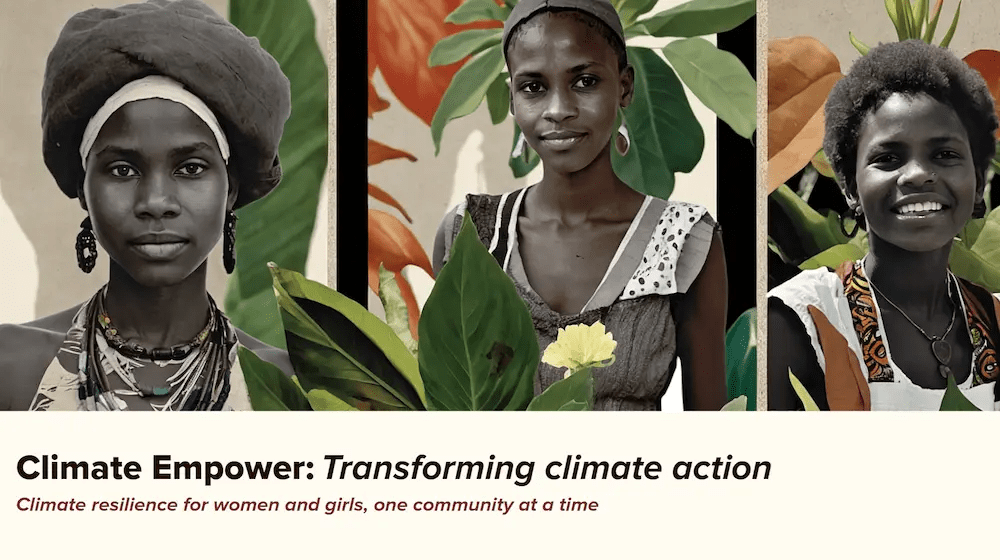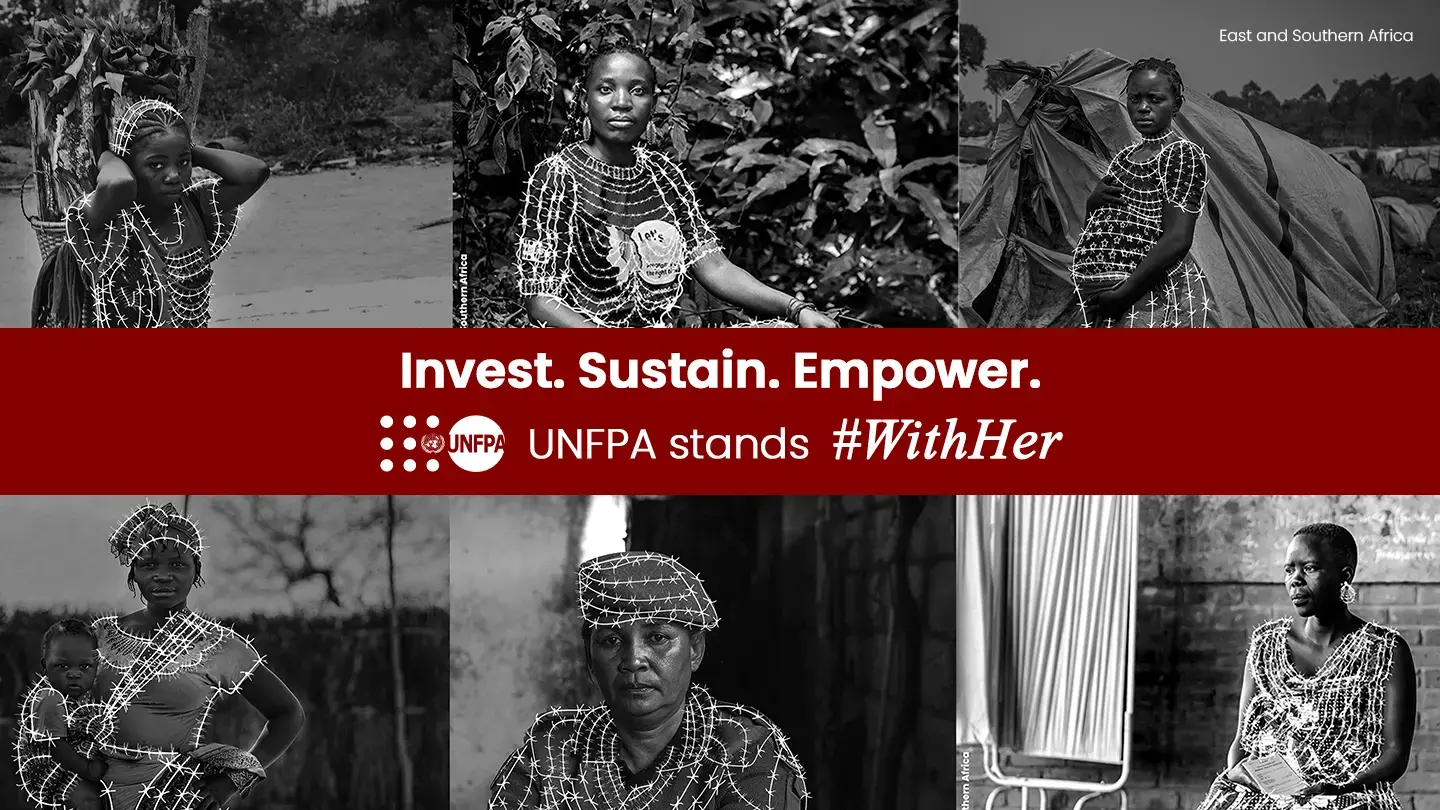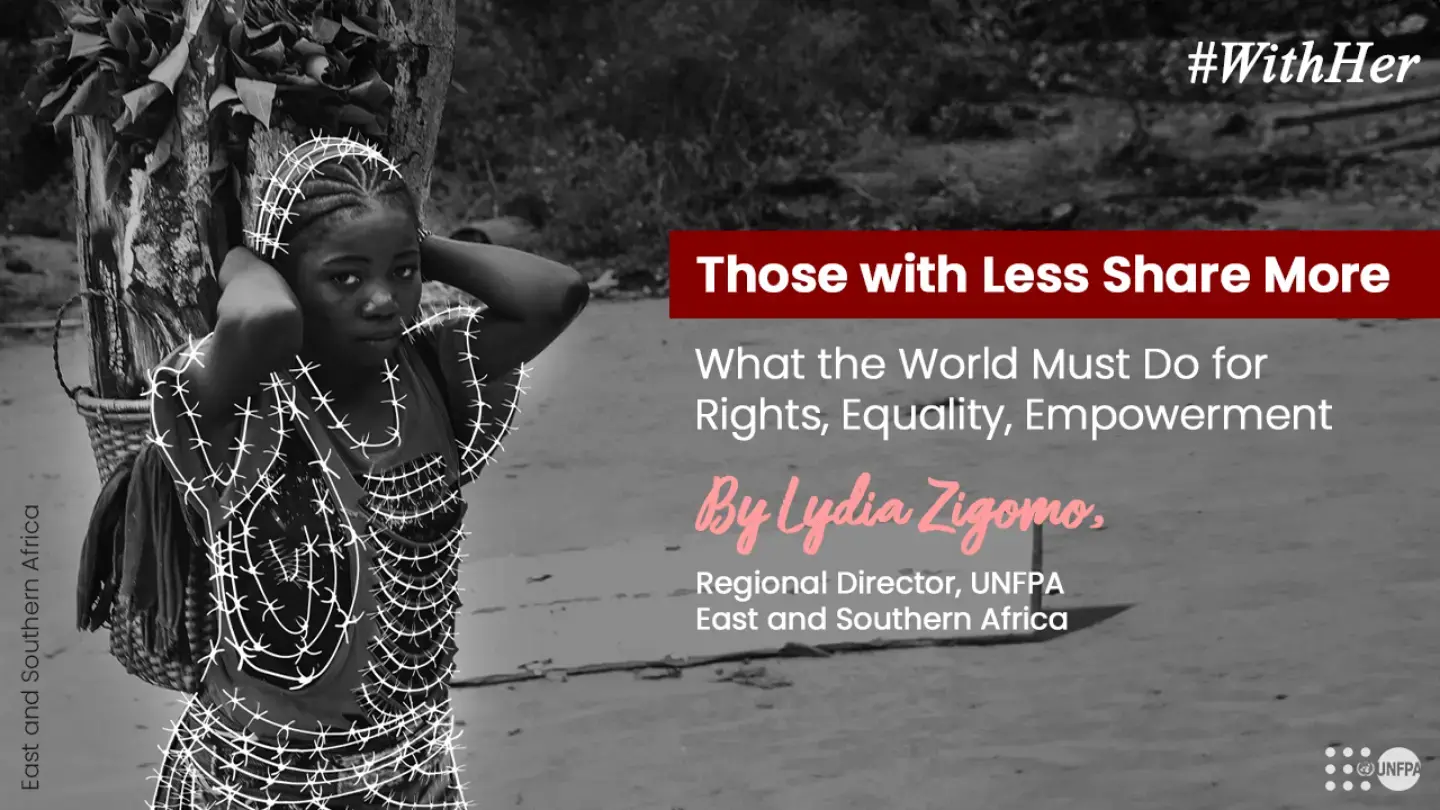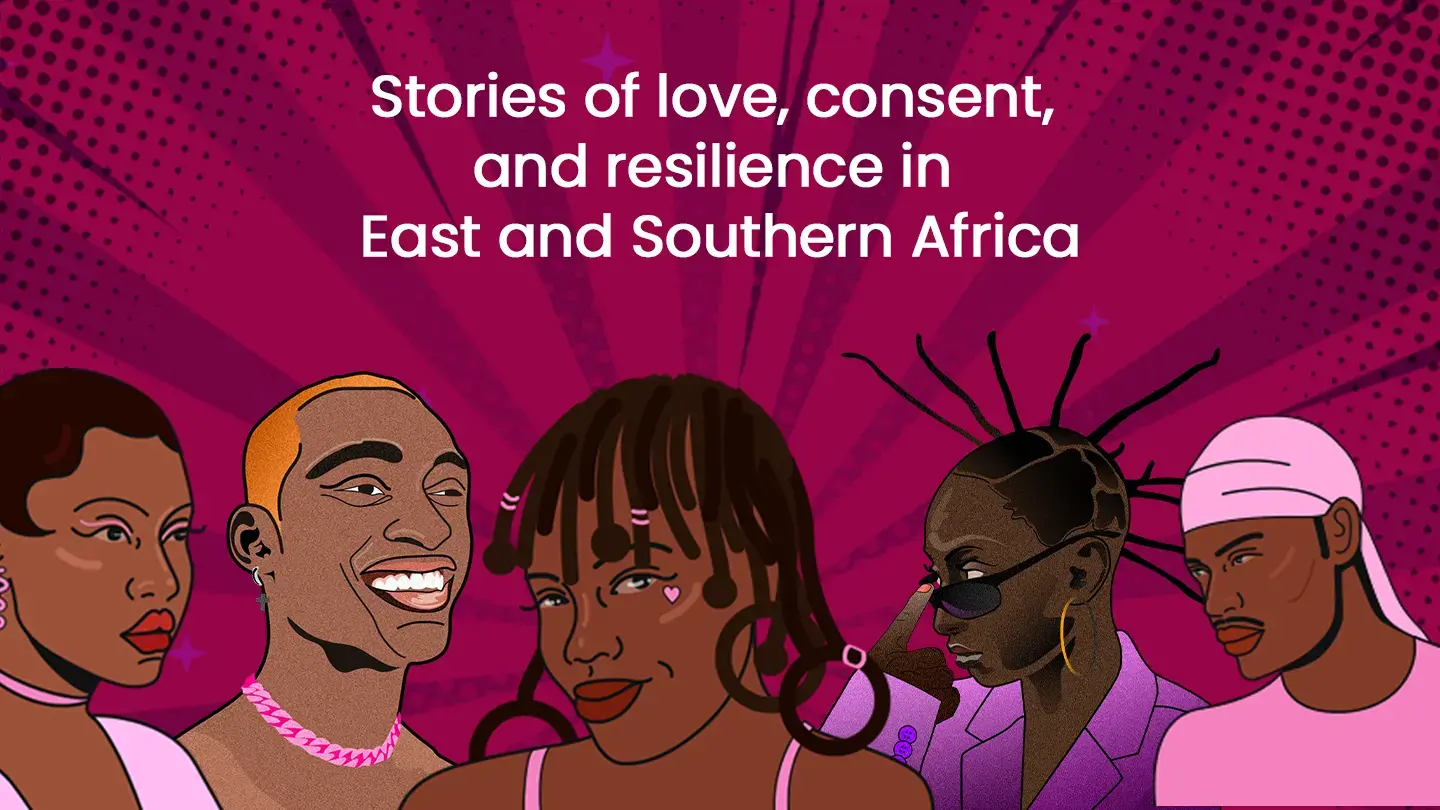UNITED NATIONS, New York – UNFPA, the United Nations sexual and reproductive health agency, and ZONTA International, an international service organization with the mission of building a better world for women and girls, announce the launch of ClimateEmpower. This transformative initiative aims to enhance the resilience of women and girls in Madagascar, Mozambique and South Sudan who are facing some of the worst fallout of climate change.
Climate change presents severe challenges, particularly for women and girls, by exacerbating poverty and inequality and increasing the frequency of extreme weather events such as cyclones, floods and droughts. These events disrupt livelihoods and access to essential services, and contribute to the escalation of gender-based violence. Pregnant women and children are disproportionately affected, as they face decreased access to nutrition and health services.
ClimateEmpower is designed to support women, girls and young people through a combination of community engagement and innovative solutions. The project's core mission is to prevent gender-based violence and other harmful practices, which tend to spike during crises such as those caused by climate disasters.
The programme includes developing a training module to guide social norms change among communities and tools for capacity building at the country level, supporting women-led entrepreneurial initiatives that address the emerging effects of climate change, and providing idea development platforms for women and girls to address the intersections of social norms, climate change and gender-based violence.
This will be supported by group sessions to share best practices and storytelling on innovative solutions to address climate change and discriminatory social norms.
Tackling an urgent need
The escalating climate crisis is increasingly jeopardizing progress towards gender equality by disrupting essential protection services to prevent and respond to gender-based violence, such as education, health and social services. Without incorporating the specific needs of women and girls into climate action plans, we risk exacerbating issues like gender-based violence, including child marriage. Evidence suggests that by 2025, climate change could force at least 12.5 million girls each year in 30 low- and lower-middle-income countries to abandon their education, with 22 of these countries located in Africa.
Research suggests that if average temperatures were to increase by just 1°C, women would face a staggering 34 per cent greater loss in their total incomes compared to men. It is estimated that 80 per cent of people displaced by climate change are women and that it has a disproportionate impact on them, underscoring the urgent need for such interventions.
Programme impact and reach
Through this programme, women and girls will gain essential knowledge about the impact of climate change on gender-based violence and harmful practices. By integrating these considerations into women’s and youth-led entrepreneurial initiatives, the programme can also support vulnerable populations more effectively through UNFPA’s Climate HackLab, which identifies climate change and sexual and reproductive health and rights innovators in East and Southern Africa.
The project is expected to reach almost half a million people across Madagascar's Grand Sud region, Mozambique's provinces of Cabo Delgado, Gaza, Manica, Nampula, Zambezia and the Upper Nile state in South Sudan.

Funding and partnership
With a total grant funding of US$1 million from Zonta International, ClimateEmpower is poised to make a substantial impact in the form of improved community understanding of climate change impacts on women and girls, enhanced leadership at the community level, and the initiation and scaling-up of innovative, sustainable solutions.
The programme fund will support the development and adaptation of training manuals and tools for women and girls, capacity building workshops, community-level dialogues to address discriminatory social norms related to gender-based violence and harmful practices, and document best practices through storytelling.
The launch of the ClimateEmpower project marks a significant milestone in UNFPA’s global effort to address the intersection of climate change and sexual and reproductive health and rights.





